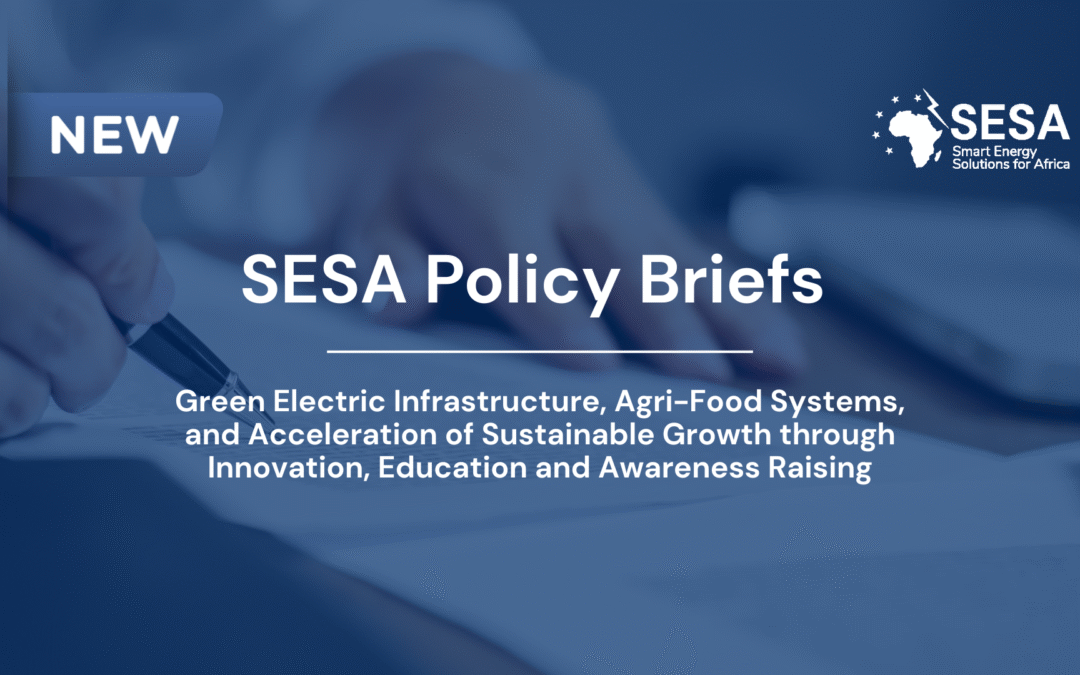Despite Africa’s vast renewable energy potential – particularly in solar – more than 600 million people, or approximately 43% of the population in sub-Saharan Africa, still lack access to electricity (IEA, 2022). This enduring energy gap compels millions to rely on polluting and expensive fuels such as kerosene and biomass. These fuels not only strain household finances but also pose serious health risks and contribute significantly to environmental degradation (WHO, 2024)
The burden of energy poverty disproportionately affects women and girls, deepening gender inequalities by increasing unpaid domestic labour, reducing access to education, and limiting participation in income-generating activities (UN Women, 2021). Furthermore, at the current pace of electrification, coupled with rapid population growth, the number of people without access to electricity is projected to remain largely unchanged in the coming decades (IEA, 2022).
Despite this, Africa holds vast untapped potential to drive inclusive, clean energy-based development. Realising this potential requires equitable policy frameworks, community-driven innovation, and financing models that empower local actors. The AU-EU Innovation Agenda and the EU’s Global Gateway Africa–Europe Investment Package ,which aim to mobilise up to €150 billion in strategic investments, place innovation and energy access at the heart of the bi-regional partnership.
Realising Africa’s clean energy future demands more than infrastructure; it calls for inclusive innovation ecosystems, fit-for-purpose financing models, and targeted support for small and medium-sized enterprises (SMEs). It is within this context that a new generation of business models is emerging – designed to overcome affordability barriers, strengthen local ownership, and scale decentralised energy access.
This policy brief shares key insights emerging from the EU funded project Smart Energy Solutions for Africa (SESA). Drawing on lessons from technology demonstrations in Living Labs in Kenya, Ghana, Malawi, Morocco, and South Africa, as well as in replication countries Rwanda, Tanzania, Nigeria, and Namibia, this brief identifies key policy challenges and opportunities relevant to future EU development cooperation. It explores four key dimensions relevant for Africa’s energy transition: 1) Green Electric Infrastructure, 2) Agri-food Systems, 3) Acceleration of Sustainable Growth, and 4) Improving Education and Awareness Raising. These findings are intended to inform the work of the EU under its Global Gateway strategy, particularly in ensuring energy investments are both inclusive and transformative.
By centring innovation, community ownership, and financial inclusion, these efforts align closely with the United Nations 2030 Agenda for Sustainable Development, the African Union’s Agenda 2063, as well as with the ambition of the AU-EU Innovation Agenda to co-develop solutions that address shared challenges. However, barriers such as limited consumer awareness, constrained access to finance, and underdeveloped supply chains continue to impede broader adoption and scale-up.
Finally, no policy or technology can succeed without the engagement of local communities and the leadership of local authorities. A just and inclusive energy transition depends on trust, participatory design, and local ownership. These are not secondary to infrastructure; they are fundamental to impact and scale.
Outlined below are the most relevant policy insights from the SESA project, intended to inform the work of the EU under its Global Gateway strategy.
Policy suggestions that support the EU’s Global Gateway strategy
- Strengthen regulatory frameworks to accelerate the adoption of decentralised energy technologies and to address installation and maintenance services
- Establish robust quality standards in line with international norms
- Harmonise Extended Producer Responsibility (EPR) policy
- Domesticize manufacturing and local supply chains
- Regulate import-export practices
- Incentivize standardisation and quality assurance
- Tailor economic support mechanisms
- Develop and improve battery recycling and e-waste infrastructure
- Institutionalize coordination around clean cooking
- Deliver targeted trainings and capacity building at all levels
- Encourage public awareness through promotional campaigns
- Seek out the involvement of women and vulnerable groups to accelerate the adoption of clean energy solutions







Recent Comments